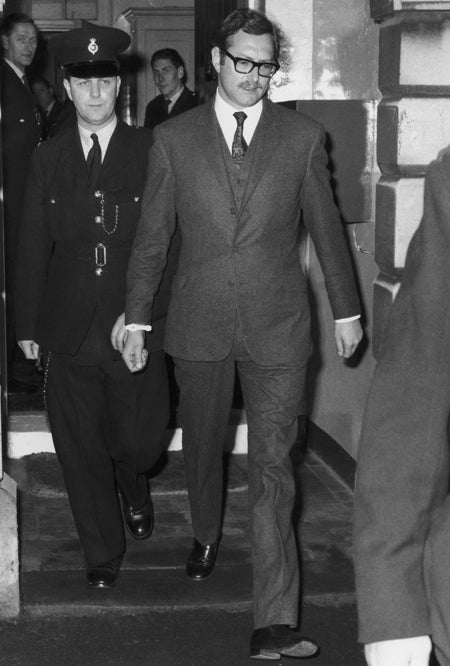Bruce Reynolds, mastermind behind Great Train Robbery, dies aged 81
Violent criminal reoffended after 10-year sentence for his part in a robbery that shook the world in 1963

Your support helps us to tell the story
From reproductive rights to climate change to Big Tech, The Independent is on the ground when the story is developing. Whether it's investigating the financials of Elon Musk's pro-Trump PAC or producing our latest documentary, 'The A Word', which shines a light on the American women fighting for reproductive rights, we know how important it is to parse out the facts from the messaging.
At such a critical moment in US history, we need reporters on the ground. Your donation allows us to keep sending journalists to speak to both sides of the story.
The Independent is trusted by Americans across the entire political spectrum. And unlike many other quality news outlets, we choose not to lock Americans out of our reporting and analysis with paywalls. We believe quality journalism should be available to everyone, paid for by those who can afford it.
Your support makes all the difference.Bruce Reynolds never captured the public imagination in the way that his fellow Great Train Robber Ronnie Biggs did. Biggs was the archetypal Cockney geezer whose early notoriety turned him – thanks to 36 years on the run, much of it in full public view in Rio de Janeiro – into a kind of celebrity. Reynolds, who has just died aged 81, was never that, despite the fact that he was said to be the mastermind of what was in 1963 Britain’s biggest-ever robbery.
Reynolds’ fellow criminals nicknamed him “Napoleon” and he too went on the run abroad for five years. But whereas Biggs was pursued by Scotland Yard’s comedically-named detective Jack Slipper, there was to be no exotic Brazilian finale for Reynolds who was captured, far more prosaically, in Torquay, and jailed for 10 years.
It is one of the paradoxes of the English character that it has a soft spot for villains. Many of the 15 criminals responsible for The Great Train Robbery – in which a Glasgow to London mail train was stopped and £2.6m in used bank notes stolen – became celebrities.
It was as if their schoolboy-style nicknames – Ronald “Buster” Edwards, Roy “Weasel” James and “Billy” Boal – turned their violent crime into a kind of game.
The judge at their trial warned against this tendency. Passing sentence, Mr Justice Edmund Davies focused on the violence used against the train driver, Jack Mills, who was struck over the head with an iron bar with such ferocity that he was never able to work again. “Let us clear out of the way any romantic notions of daredevilry,” the judge said. “This is nothing less than a sordid crime of violence inspired by vast greed.”
But the British public is in love with false romanticism. So are some newspapers which printed chortling stories over how the villains had played Monopoly with the stolen bank notes. Buster Edwards, who was believed to have wielded the iron bar, even became the subject of a 1988 film Buster where he was played by a pop star, Phil Collins.
In the English folk tradition criminals become heroes, as has been the case since the time of the murdering mugger Dick Turpin whom legend has speciously transformed into a Robin Hood figure intent upon giving the rich their deserved comeuppance in a kind of poetic justice.
Yet it is not so much the glamour of evil as its banality which is on show here. These men were the Raoul Moats or Dale Cregans of a bygone era. It is just that the passing of the years softens and sentimentalises the public view. So much so that the media was straight-facedly reporting Ronnie Biggs’ son paying tribute to Reynolds as “a very, very kind person who was a true gentlemen who made many friends in his life”. Yes and Hitler was a vegetarian who loved cream cakes and banned cruelty to lobsters.
The truth about Bruce Reynolds was that he was a low-life loser who came out of jail after Britain’s greatest robbery and was back behind bars a few years later for peddling amphetamines. Why anyone would want to celebrate such detritus is one of the true mysteries of British public life.